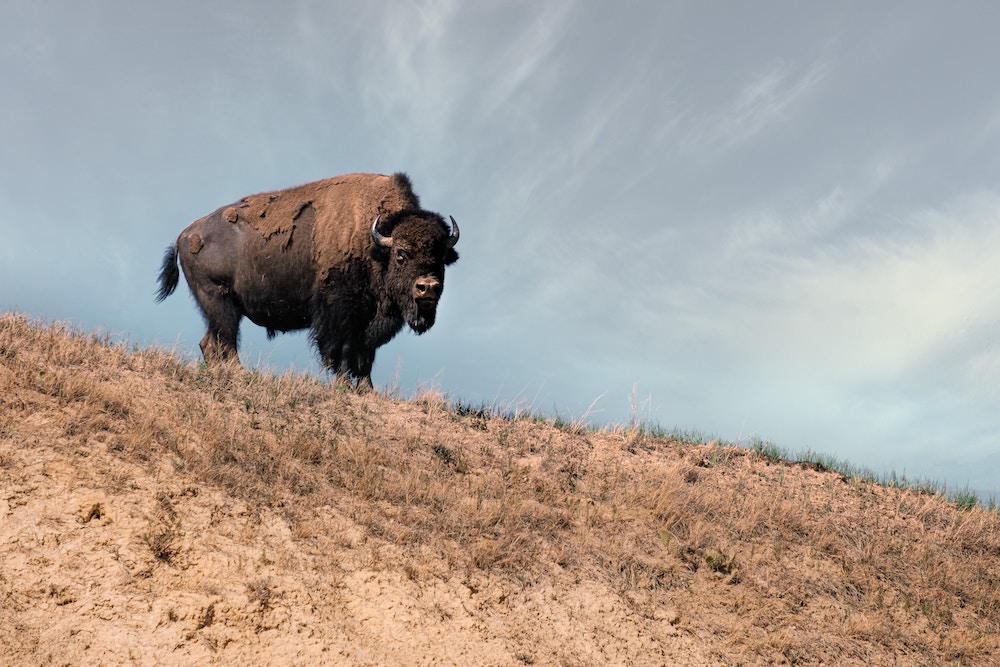
- Details
- By Tribal Business News Staff
- Food | Agriculture
Three tribal communities will receive a total of $1.5 million aimed at expanding and sustaining their bison restoration efforts through the Department of the Interior’s Bureau of Indian Affairs, per an announcement released earlier this week.
The Cheyenne and Arapaho Tribes of Oklahoma will double the area of pasture to make room for growing their herd past an existing 650 bison. The funding will also support a market study for the feasibility of selling bison products to a wider Oklahoman market.
The Three Affiliated Tribes of the Fort Berthold Reservation in North Dakota will leverage the funds to build a 10,000-acre pasture on tribal lands to support expanding their 250-strong herd. The expansion will allow for an eventual capacity of 4,000 bison.
The Shoshone-Bannock Tribes of the Fort Hall Reservation in Idaho plans to grow its herd from 465 to roughly 1,100 by purchasing additional buffalo and developing their bison-raising operations with more staff and economic development.
“Bison are vitally important culturally, economically, and ecologically,” Bryan Newland, assistant secretary for Indian Affairs said in a statement. “These investments from the President’s Investing in America agenda support our efforts to revitalize Tribal cultures and communities and help conserve and restore important ecosystems that benefit all Americans.”
The funds stem from roughly $2 billion aimed at climate resilience and restoration measures created first by the Bipartisan Infrastructure Act of 2021, and later the Inflation Reduction Act of 2022. The initiative follows similar efforts by the USDA to support bison reintroduction efforts, after the latter agency launched a pilot program aimed at supporting Tribal bison producers and then purchasing their stock for Native food distribution food programs.
The BIA announcement states that bison reintroduction can enhance soil development, restore native plants and wildlife to affected areas, and promote carbon sequestration - a common concern and potential revenue driver for Native environmental projects in recent years, per prior Tribal Business News reporting. Previous TBN stories have also pointed to economic opportunities and cultural renewals as important effects of bison herd restoration.
